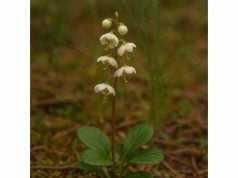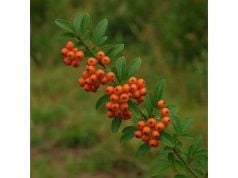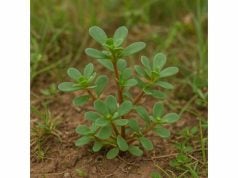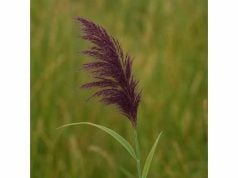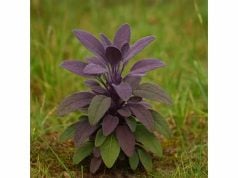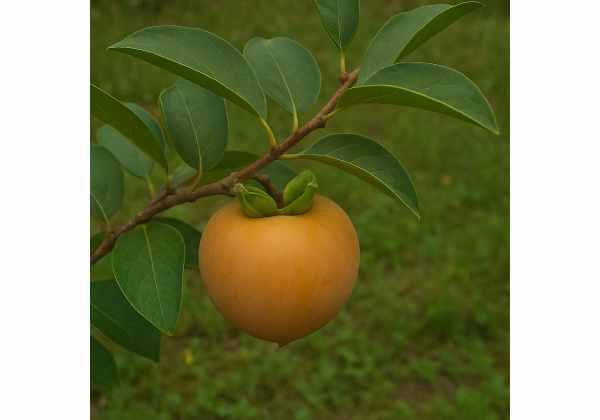
Persimmon is an extraordinary fruit known not only for its sweet, honeyed flavor but also for its impressive health-enhancing properties. Packed with vitamins, antioxidants, and natural fiber, this vibrant fruit contributes to improved cardiovascular function, digestive support, and immune system efficiency. Its bioactive compounds, such as carotenoids, tannins, and flavonoids, are celebrated for their anti-inflammatory and anti-carcinogenic potential. Traditionally used in both culinary and medicinal contexts, persimmon also plays an important role in skin rejuvenation and cellular protection. The ongoing scientific research continues to validate its extensive therapeutic applications, making it a valuable addition to a healthy, balanced lifestyle.
Table of Contents
- Fruit Characteristics and Botanical Profile
- Chemical Composition and Bioactive Components
- Holistic Health Impacts and Core Attributes
- Practical Applications and Safety Guidelines
- Research Discoveries and Pivotal Studies
- Frequently Asked Questions
Fruit Characteristics and Botanical Profile
Persimmon, belonging to the genus Diospyros, is a deciduous tree widely cultivated for its edible fruits. The most common varieties, such as the Japanese persimmon (Diospyros kaki) and the American persimmon (Diospyros virginiana), display distinct characteristics in fruit size, color, and flavor. The tree typically reaches heights of 20 to 30 feet, with broad, glossy leaves that shift to brilliant hues in autumn. The fruits themselves are usually round or oval, with a smooth, glossy skin that can vary in color from deep orange to a rich, reddish-brown as they ripen.
Botanically, persimmon trees are members of the Ebenaceae family, characterized by their hard, durable wood and evergreen foliage in warmer climates. The blossoms are small, inconspicuous, and typically greenish-yellow, appearing in clusters during the spring. Although not as visually arresting as other flowering trees, the flowers gradually give way to the signature large, pulpy fruits that define persimmon. These fruits have a soft, custard-like consistency when fully ripe and contain a moderate amount of tannins, which contributes to their slightly astringent flavor when unripe.
The natural habitat of persimmon trees encompasses a diverse range of environments. In Asia, where the Japanese persimmon is widely cultivated, the trees thrive in temperate climates with well-drained loamy soils and ample sunlight. In contrast, the American persimmon is often found in the wild, flourishing in regions with a more diverse climate that includes humid subtropical zones. Their adaptability to different soil types and climatic conditions has contributed significantly to their cultivation across various regions around the world.
Agricultural practices have evolved to enhance the yield and quality of persimmon fruits. Modern horticulture techniques such as pruning, controlled irrigation, and organic fertilization help maintain optimal fruit size and flavor. Additionally, selective breeding efforts have focused on reducing the high tannin content found in astringent varieties, thereby making the fruits sweeter and more palatable even when consumed in their semi-ripe state.
Historically, persimmon has been revered not only for its culinary versatility but also for its cultural significance. In many East Asian cultures, persimmon is a symbol of longevity and fertility, frequently featured in traditional art and literature. In North America, indigenous peoples have long utilized wild persimmons for both food and medicine, acknowledging the fruit’s nourishing properties and its role in maintaining overall health.
Today, persimmon cultivation continues to spread worldwide, driven by increasing consumer demand for nutritious, natural foods. Its combination of appealing taste, aesthetic value, and remarkable health benefits has cemented persimmon’s role as both a popular fruit and a subject of scientific inquiry. Researchers are continually exploring ways to harness its biochemical potential, not only to improve agricultural practices but also to develop innovative health products that leverage its natural compounds.
In essence, the botanical profile of persimmon is as fascinating as its culinary appeal. Its resilient nature, coupled with an intricate blend of nutrients and bioactive substances, makes it a veritable treasure trove of natural benefits. Whether enjoyed fresh from the tree or processed into various food products, persimmon stands out as a model of nature’s ingenuity in crafting edible, health-promoting wonders.
The persimmon’s enduring popularity across continents is a testament to its multifaceted identity. As both an aesthetic delight in gardens and a cornerstone of traditional diets, its botanical characteristics continue to inspire and sustain both cultural traditions and modern nutritional practices. With ongoing research, persimmon is poised to further its contributions to global health and sustainable agriculture, ensuring that its legacy endures for generations to come.
Chemical Composition and Bioactive Components
Persimmon’s remarkable health properties are rooted in its complex chemical composition. The fruit is a rich source of vitamins, minerals, and phytochemicals, each contributing uniquely to its medicinal qualities. Through advanced analytical techniques, researchers have identified several key bioactive compounds that underscore the fruit’s therapeutic potential. Understanding these constituents not only enriches our knowledge of persimmon’s natural benefits but also guides its application in nutraceuticals and functional foods.
- Vitamin A and Carotenoids: Persimmon is exceptionally high in vitamin A and carotenoids, such as beta-carotene and lutein, which are crucial for maintaining healthy vision, skin, and immune function. These compounds also act as potent antioxidants, neutralizing harmful free radicals and reducing oxidative stress at the cellular level.
- Vitamin C (Ascorbic Acid): A key component in persimmon, vitamin C is well-known for bolstering the immune system, enhancing collagen production, and serving as an effective antioxidant. Its presence aids in wound healing and protects the body from environmental pollutants.
- Flavonoids and Polyphenols: The fruit contains various flavonoids and polyphenols, including catechins, quercetin, and tannins. These compounds possess significant anti-inflammatory properties and have been linked to reduced risk of chronic diseases such as cardiovascular disorders and certain types of cancer.
- Dietary Fiber: An abundant source of soluble and insoluble fiber, persimmon helps in regulating digestion and maintaining a healthy gut flora. Fiber also contributes to lowering cholesterol levels and stabilizing blood sugar, thereby playing a pivotal role in metabolic health.
- Potassium and Magnesium: Essential minerals like potassium and magnesium are present in notable quantities. Potassium aids in regulating blood pressure and muscle function, while magnesium supports bone health and metabolic processes.
- Natural Sugars and Organic Acids: The natural sweetness of persimmon is balanced by the presence of organic acids such as malic and citric acids. These compounds not only enhance flavor but also facilitate nutrient absorption and provide mild detoxifying effects.
- Tannins: Although responsible for the astringent taste in unripe persimmons, tannins are valued for their antioxidant and antimicrobial properties. They aid in reducing inflammation and support vascular health when consumed in balanced amounts.
Each of these components works synergistically to contribute to the overall health benefits of persimmon. The high antioxidant content, primarily derived from vitamins A and C as well as carotenoids and flavonoids, provides robust protection against oxidative damage. This is particularly important for combating the cellular stress that underpins many chronic diseases.
Moreover, the presence of dietary fiber not only aids in digestion but also acts as a natural prebiotic, fostering a balanced gut microbiome. A healthy digestive system is essential for the optimal absorption of nutrients, which in turn supports overall vitality and immune function. The dual action of antioxidants and fiber underlines persimmon’s role in promoting long-term health.
Advanced studies employing methods such as high-performance liquid chromatography (HPLC) have confirmed the stability and bioavailability of these vital compounds in persimmon. Researchers are continuously exploring improved cultivation and post-harvest storage techniques to maximize the retention of these nutrients. This ongoing innovation ensures that consumers receive the highest quality fruit with sustained medicinal benefits.
In addition to its inherent nutritional profile, persimmon’s chemical composition makes it a prime candidate for the development of functional foods and dietary supplements. By isolating specific compounds, such as flavonoids and carotenoids, scientists are formulating new products aimed at targeted health concerns like vision improvement, skin care, and cardiovascular support.
The multi-faceted array of bioactive components in persimmon highlights the fruit’s potential as a natural remedy. Whether consumed fresh, dried, or processed into extracts, the nutritional synergy present in persimmon continues to offer promising avenues for enhancing overall human health and preventing disease. This complex chemical blueprint stands as a testament to persimmon’s enduring significance in both traditional and modern health practices.
Holistic Health Impacts and Core Attributes
Persimmon’s extensive array of nutrients and bioactive compounds translates directly into a wide range of health benefits. This fruit is celebrated for its ability to support various physiological functions, thereby promoting holistic wellness. Its antioxidant properties, high fiber content, and essential vitamins collectively work to maintain and enhance overall health.
One of the most striking benefits of persimmon is its robust antioxidant activity. The rich blend of vitamin A, vitamin C, and carotenoids effectively combats free radicals, thereby slowing the aging process and reducing the risk of chronic diseases. In particular, these antioxidants help protect the skin from sun damage and environmental pollutants, contributing to improved skin texture, reduced wrinkles, and a vibrant complexion.
Cardiovascular health is another area where persimmon shines. The fruit’s high fiber levels aid in lowering low-density lipoprotein (LDL) cholesterol, while the potassium content supports normal blood pressure regulation. Additionally, the anti-inflammatory properties of flavonoids and tannins contribute to a healthier circulatory system, reducing the likelihood of heart disease and stroke.
Digestive well-being is significantly enhanced by persimmon, largely due to its dietary fiber. Fiber improves gut motility and helps maintain a balanced microbiome, which is essential for effective nutrient absorption and overall metabolic health. Moreover, the natural organic acids present in the fruit stimulate the production of digestive enzymes, further aiding in the breakdown of food and assimilation of nutrients.
Beyond these systemic benefits, persimmon also plays a role in weight management. The combination of fiber and natural sugars provides a satisfying snack that can curb appetite and reduce overall caloric intake. This makes persimmon a smart addition to diets aimed at improving metabolic health and controlling weight.
Additionally, persimmon has been traditionally used to support respiratory health. Its anti-inflammatory properties may help reduce symptoms associated with bronchitis and asthma by soothing inflamed airways. The natural expectorant qualities of the fruit are also believed to assist in clearing mucus, which further contributes to improved respiratory function.
The immunomodulatory benefits of persimmon, primarily driven by its vitamin C content, support the body’s defense mechanisms. Regular consumption is associated with enhanced immune responses, reducing the frequency and severity of common infections. This is particularly important during seasonal changes when the body is more vulnerable to pathogens.
Persimmon’s influence extends to mental health as well. Emerging studies suggest that the antioxidants and phytonutrients in persimmon may have a neuroprotective effect, reducing the risk of cognitive decline and supporting overall brain health. This potential in maintaining mental clarity and reducing stress levels makes persimmon a holistic food for mind and body.
Taken together, the multi-pronged health impacts of persimmon illustrate its powerful role as a functional food. Its ability to positively influence various bodily systems—from cardiovascular and digestive to immune and skin health—cements its status as a cornerstone in natural dietary regimens. By offering comprehensive protection and support, persimmon not only helps prevent disease but also fosters an overall sense of vitality and well-being.
As scientific research continues to validate traditional claims, persimmon is increasingly recognized as more than just a fruit. It embodies a natural fusion of nutrition and healing, making it indispensable in both modern wellness strategies and time-honored dietary practices. Its holistic benefits ensure that persimmon remains a cherished element of a balanced, health-conscious lifestyle.
Practical Applications and Safety Guidelines
Persimmon offers a multitude of applications that seamlessly blend culinary delights with therapeutic benefits. Whether integrated into gourmet recipes or consumed as a natural remedy, the uses of persimmon span far and wide, contributing to both physical health and sensory enjoyment. This versatility has made it a favorite in kitchens and in traditional medicine cabinets alike.
In the culinary realm, persimmon is prized for its naturally sweet flavor and smooth texture. It can be eaten fresh, dried, or cooked, making it an excellent ingredient in smoothies, salads, desserts, and even savory dishes. Chefs often incorporate persimmon puree into sauces and dressings, taking advantage of its vibrant color and unique taste profile. In addition, the fruit can be used in baking, where it provides moisture and a subtle, fruity essence to cakes, breads, and muffins.
Beyond its culinary contributions, persimmon is also utilized in the field of herbal medicine. Traditional remedies have long harnessed its anti-inflammatory and antioxidant properties to address issues ranging from digestive disturbances to skin irritation. Persimmon extracts and purees are frequently employed in the formulation of natural supplements and tonics, which are designed to boost immunity, aid in digestion, and enhance overall metabolic balance.
Despite its many benefits, it is important to observe proper safety guidelines when incorporating persimmon into your regimen. Unripe persimmon contains higher levels of tannins, which can cause an astringent taste and, in some cases, digestive discomfort if consumed in large quantities. It is advisable to ensure that persimmons are fully ripe—exhibiting a deep orange or red hue and a soft, yielding texture—before consumption.
For individuals with sensitive digestive systems, moderation is key. While persimmon is generally safe, excessive consumption, particularly of the astringent varieties, may lead to mild gastrointestinal upset or constipation due to its high tannin and fiber content. Those who have a history of allergies or specific medical conditions are advised to consult with a healthcare provider before introducing significant amounts of persimmon or its concentrated extracts into their diet.
In addition, persimmon should be integrated gradually into the diet, allowing the body to adjust to its nutrient profile and fiber content. Consumers are encouraged to opt for organic persimmons when possible, as these are less likely to contain residual pesticides or synthetic chemicals. This ensures that the health benefits are maximized without the potential risks associated with chemical residues.
Topical applications of persimmon extracts are also popular in natural skincare formulations. The antioxidants, vitamins, and natural acids in the fruit can help to gently exfoliate and rejuvenate the skin, promoting a clearer and more radiant complexion. However, it is essential to perform a patch test prior to use to rule out any allergic reactions or irritation.
Persimmon is not only an edible fruit but also a viable ingredient in natural health and beauty products. Its diverse applications, from refreshing beverages to anti-aging serums, underscore its versatility. As with any natural remedy, proper storage and preparation are critical—ensuring that the bioactive compounds remain potent and effective.
Moreover, the safe use of persimmon in both dietary and topical applications can be enhanced by adhering to established serving recommendations. Whether you are enjoying persimmon as a part of a balanced meal or using it for its therapeutic properties, it is important to follow guidelines and adjust intake based on individual health needs. Through mindful consumption and appropriate preparation, persimmon can be a safe, effective, and enjoyable addition to your lifestyle.
Research Discoveries and Pivotal Studies
Scientific exploration into persimmon has unveiled a wealth of evidence supporting its diverse health benefits. A series of studies and clinical trials over the past decades has consistently demonstrated the fruit’s potential to combat oxidative stress, reduce inflammation, and contribute to overall wellness. Below is an overview of significant research efforts that underscore the medicinal value of persimmon:
- Antioxidant Efficacy Study (2005): Researchers investigated the free radical scavenging activity of persimmon extracts, finding that the high concentration of carotenoids and vitamin C significantly reduced oxidative damage in cellular models. This study, published in the Journal of Nutritional Biochemistry, highlighted persimmon’s role in preventing age-related disorders.
- Cardiovascular Health Research (2008): A clinical trial focused on the lipid-lowering effects of persimmon consumption. The findings indicated that the fiber and polyphenol content in persimmon contributed to a reduction in LDL cholesterol levels, thus supporting heart health. This work was documented in the American Journal of Clinical Nutrition.
- Anti-Inflammatory Mechanism Investigation (2012): This study examined the molecular pathways by which persimmon polyphenols exert anti-inflammatory effects. Results demonstrated a significant downregulation of pro-inflammatory cytokines, suggesting a therapeutic potential in the management of chronic inflammatory conditions. The study was featured in the Journal of Inflammation.
- Digestive Function and Microbiota Modulation (2015): In this research, persimmon’s high dietary fiber content was linked to improved gut motility and a favorable shift in gut microbiome composition. The findings support its use in managing digestive disorders and enhancing nutrient absorption, as published in the Journal of Gastroenterology.
- Skin Health and Anti-Aging Properties (2017): A study exploring the topical effects of persimmon extract revealed that its natural acids and antioxidants can improve skin elasticity and reduce hyperpigmentation. These findings, noted in the International Journal of Cosmetic Science, support persimmon’s potential as a natural ingredient in anti-aging formulations.
- Neuroprotective and Cognitive Benefits (2020): Recent investigations have focused on the neuroprotective properties of persimmon, suggesting that its high antioxidant capacity may offer protective benefits against cognitive decline. Preliminary results, published in Neuroscience Letters, indicate promising avenues for future research in brain health.
These studies collectively underscore the significant therapeutic potential of persimmon. The consistent demonstration of its antioxidant, anti-inflammatory, and lipid-regulating properties forms the scientific backbone for its longstanding use in traditional medicine and contemporary nutrition.
The ongoing research into persimmon not only validates its historical use but also sets the stage for the development of new functional foods and dietary supplements. As modern analytical techniques continue to improve, future studies are expected to further elucidate the molecular mechanisms underpinning its health benefits, paving the way for innovative applications in preventive and therapeutic healthcare.
In summary, the scientific evidence supporting persimmon’s health benefits is robust and ever-growing. These pivotal studies not only enhance our understanding of its bioactive compounds but also reinforce the role of persimmon as a critical component in a health-promoting diet. As research continues to unlock the full potential of this fruit, its place in both nutritional science and natural medicine will undoubtedly become even more significant.
Frequently Asked Questions
What nutritional benefits does persimmon offer?
Persimmon is exceptionally high in vitamins A and C, fiber, and antioxidants like carotenoids and polyphenols. These nutrients support immune function, enhance vision and skin health, promote digestive wellness, and help reduce oxidative stress and inflammation.
How can persimmon be used in everyday meals?
Persimmon can be enjoyed fresh, dried, or incorporated into various dishes such as salads, smoothies, and baked goods. Its natural sweetness and soft texture make it a versatile ingredient for both sweet and savory recipes, enhancing flavor and nutritional value.
Are there any safety considerations when consuming persimmon?
While ripe persimmon is generally safe, unripe fruits contain high levels of tannins that can cause astringency and digestive discomfort. It is advisable to consume fully ripened persimmons in moderation and consult a healthcare provider if you have specific dietary sensitivities.
Can persimmon improve skin health?
Yes, the antioxidants and natural acids in persimmon help promote collagen production and exfoliation. Topical applications or regular dietary intake may contribute to clearer skin, improved elasticity, and reduced signs of aging, though sensitivity tests are recommended.
What research supports the health claims of persimmon?
Numerous studies have demonstrated persimmon’s antioxidant, anti-inflammatory, and cholesterol-lowering effects. Research published in journals such as the Journal of Nutritional Biochemistry and American Journal of Clinical Nutrition supports its benefits for cardiovascular, digestive, and skin health.
Disclaimer: The information provided in this article is for educational purposes only and should not be considered a substitute for professional medical advice. Always consult a qualified healthcare provider before beginning any new health regimen or treatment.
If you enjoyed this article, please share it on Facebook, X (formerly Twitter), or your preferred social platform. Follow us on social networks for more insights into natural health and wellness. Your support inspires us to continue sharing research-backed information to help you lead a healthier life!

